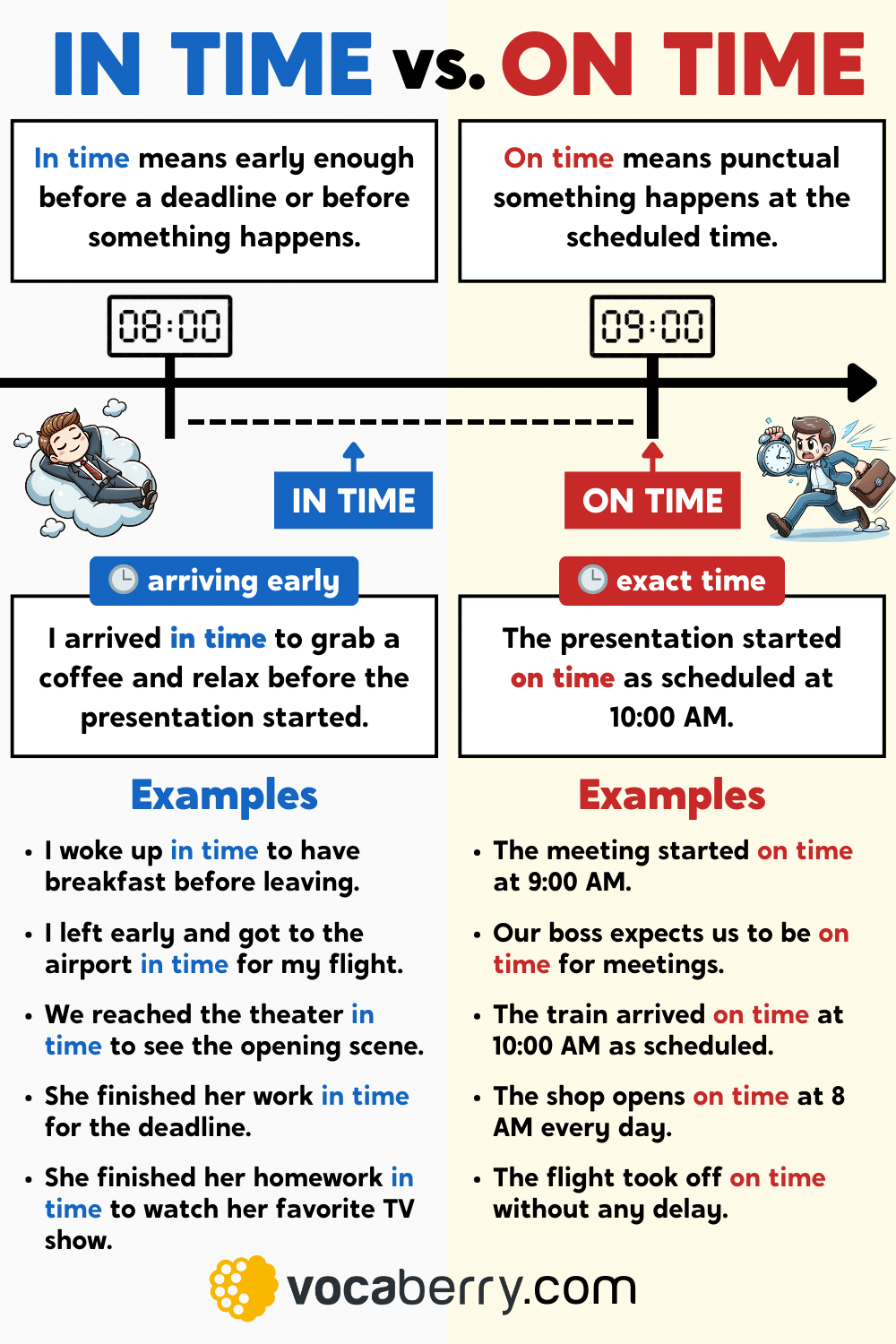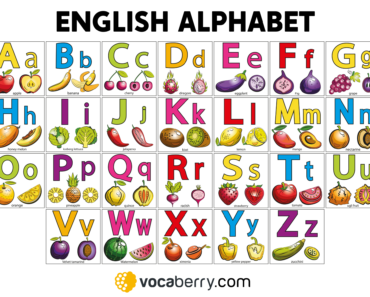
Many English learners confuse “on time” and “in time” because they both relate to time and punctuality. However, they have different meanings and uses.
- On time means punctual—something happens at the scheduled time.
- In time means early enough—before a deadline or before something happens.
Understanding the difference between these two phrases will help you use them correctly in everyday conversations and professional settings.
What Does “On Time” Mean?
On time means something happens at the scheduled or expected time, neither late nor early. It is used when talking about appointments, schedules, and deadlines.
Examples:
- The train arrived on time at 9:00 AM.
- Our boss expects us to be on time for meetings.
- The flight took off on time without any delay.
- She always submits her assignments on time.
- The concert started on time, as planned.
- The teacher arrived on time to start the lesson.
- The bus left on time, so I didn’t miss it.
- The shop opens on time at 8 AM every day.
Common Structures:
- Be on time for (something) → Try to be on time for the appointment.
- Arrive on time → She always arrives on time for work.
- Start on time → The event will start on time.
What Does “In Time” Mean?
In time means something happens before it is too late or early enough to do something. It is often used when talking about deadlines, opportunities, or preventing problems.
Examples:
- I left early and got to the airport in time for my flight.
- We arrived in time to get good seats at the concert.
- She finished her work in time for the deadline.
- He ran fast and got home in time to watch the game.
- I woke up in time to have breakfast before leaving.
- She got to the bus stop in time to catch the last bus.
- The ambulance arrived in time to save the patient.
- We reached the theater in time to see the opening scene.
Common Structures:
- Be in time for (something) → We arrived in time for the presentation.
- Come in time → Will you be able to come in time for the meeting?
- Just in time → We made it just in time before the store closed.
Differences Between “On Time” and “In Time”
| Phrase | Meaning | Example |
|---|---|---|
| On time | Something happens at the exact scheduled time, not late. | The bus arrived on time at 8:30 AM. |
| In time | Something happens early enough or before it’s too late. | I got home in time to watch the match. |
Quick Tip:
- Use on time when talking about strict schedules (planes, trains, meetings).
- Use in time when talking about arriving early enough before something happens.
Quiz: On Time vs. In Time
1. The bus arrived exactly at 8:00 AM. It was ______.
a) on time
b) in time
2. I got to the station just ______ to catch my train.
a) on time
b) in time
3. The class starts at 9:00 AM, and the teacher arrived ______.
a) on time
b) in time
4. We finished the work ______ to meet the deadline.
a) on time
b) in time
5. She is always ______ for work.
a) on time
b) in time
6. He ran fast and made it ______ for the flight.
a) on time
b) in time
7. The meeting started exactly as scheduled, so it was ______.
a) on time
b) in time
8. We arrived at the cinema just ______ before the movie started.
a) on time
b) in time
9. I hope we get home ______ to watch the show.
a) on time
b) in time
10. The train left at the scheduled time, so it was ______.
a) on time
b) in time
Quiz Answers
1) on time
2) in time
3) on time
4) in time
5) on time
6) in time
7) on time
8) in time
9) in time
10) on time







i didn’t know that thanks you’re the best for learning english you need to post more content pls